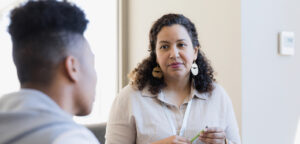
Got You Time? Clearing Mental Clutter for Growth
I have a brown wicker chair on my back porch. It is nestled in a little nook, shaded by the overhang of my roof and the foliage of Douglas firs and oaks. My neighbor’s water features, two little fountains and streams, gently murmur. One











